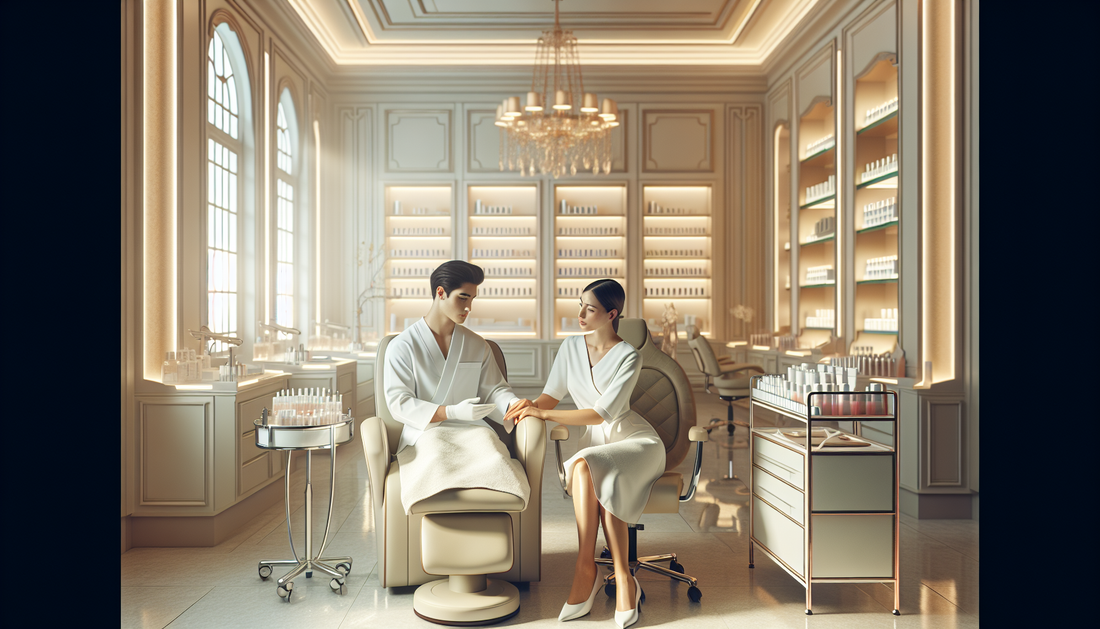
The Risks and Legal Consequences of Unlicensed Beauty Procedures in Singapore
BingoBot1.08 Summary NewsShare
In Singapore, the allure of cheaper, unlicensed beauty procedures has led to severe health risks and legal ramifications. Increasing incidents highlight the dangers consumers face when opting for these unauthorized treatments in pursuit of cosmetic perfection. 🚨
- Health Risks: Individuals have reported severe infections, allergic reactions, and permanent disfigurement resulting from unqualified practitioners using non-sterile equipment or counterfeit products.
- Legal Consequences: Legal action is being taken against unlicensed practitioners with cases involving hefty fines and potential jail time, as Singapore's strict regulations aim to maintain safety standards. ⚖️
- High-profile Incidents: In recent months, a notable case involved a woman suffering from a severe infection following a botched lip filler procedure performed in an unlicensed setting.
- Government Crackdown: The Singaporean authorities are intensifying efforts to identify and shut down clandestine beauty clinics operating without licenses, with an increase in enforcement operations since the beginning of 2023.
- Public Awareness Campaigns: Initiatives are underway to educate the public about the importance of seeking treatments from certified professionals, emphasizing the potential long-term health implications of choosing unlicensed services. 📢
Stay informed and prioritize your safety when considering beauty procedures. 💡
In Singapore, an unlicensed beautician was sentenced to jail following her involvement in a botched procedure that left a woman with a worsened drooping eyelid. The case highlights the crucial issue of unlicensed aesthetic treatments in the region. Understanding the circumstances and acknowledging the risks associated with these practices can help raise awareness among potential consumers, ultimately guiding them to make safer choices. Unlicensed procedures not only pose significant health risks but also lead to legal repercussions for those performing them.
On September 10, the defendant, identified as Lilly Wong, performed an aesthetic procedure for 33-year-old client Sarah Tan at the former’s residence in Toa Payoh. Despite lacking official certification, Lilly Wong advertised her services online, offering them at a fraction of the cost compared to licensed establishments. The allure of affordability, however, quickly turned disastrous for Sarah, who was promised rejuvenated facial features but suffered from severe discomfort soon after the procedure.
Sarah sought immediate medical attention, only to learn that the improper technique had exacerbated her initially mild drooping eyelid condition. The regrettable incident led to irreversible complications, prompting her to file a complaint. Authorities took swift action, resulting in Wong’s arrest.
The Surge of Illegal Aesthetic Procedures in Singapore
Unlicensed cosmetic procedures have become increasingly prevalent in Singapore. The region's high demand for aesthetic services has led to a rise in illegal practices. These services often promise beauty enhancements at lower costs than regulated medical facilities. Consequently, many consumers are misled by the attractive price points, unaware of the significant risks they entail. The lack of professional training and regulation exposes clients to potential disfigurement and long-term health issues.
Singapore’s Health Sciences Authority (HSA) and the Medical Services Unit regularly issue warnings and urge consumers to verify the legitimacy of any aesthetic service providers. They emphasize the importance of consulting licensed professionals to ensure safety and compliance with medical standards.
The Legal Repercussions and Safety Concerns
The legal repercussions for unlicensed practitioners in Singapore can be severe. As demonstrated in Lilly Wong’s case, operating without certification can lead to substantial fines and imprisonment. In 2019, amendments to Singapore's Medical Registration Act bolstered regulations and enforcement against unauthorized medical and cosmetic procedures. These measures aim to deter illegal activities in the beauty industry, safeguarding public health and consumer rights.
Safety concerns are paramount when considering aesthetic procedures. Licensed professionals are trained extensively to mitigate risks and handle complications should they arise. Unlicensed practitioners, however, lack the necessary skills and experience to provide safe treatment, resulting in hazardous outcomes and potential legal actions against them.
Consumer Awareness and Future Prevention
Consumer education is a crucial component in preventing the growth of unlicensed aesthetic services. Public awareness campaigns can inform individuals about the dangers of seeking procedures from unqualified persons. Encouraging potential clients to conduct thorough research and verify the credentials of aestheticians will fortify efforts in mitigating risks. Awareness efforts must also extend to addressing the psychological appeal of discounted rates, emphasizing that health and safety should not be compromised by cost.
Increased regulation by authorities is another essential step. Stricter monitoring of online platforms where such services are advertised can reduce accessibility and discourage illegal practitioners. Collaborations between government health agencies and community organizations can foster a culture of safety and vigilance in cosmetic procedures.
The Way Forward: Emphasizing Regulation and Responsibility
As the aesthetic industry continues to flourish, it’s imperative to ensure robust regulations to maintain high safety standards. Building stronger frameworks for professional accreditation and constant vigilance by governing bodies will help avert incidents similar to Sarah Tan’s case. Collective responsibility, combining consumer education with regulatory enforcement, will advance the fight against unsafe aesthetic practices.
Sarah Tan’s unfortunate experience serves as a poignant reminder of the potential consequences of unlicensed procedures. Choosing a certified professional ensures not only desired aesthetic outcomes but, more importantly, personal safety and well-being. By advocating for informed decisions and stringent oversight, both consumers and industry leaders can contribute to a safer and regulated aesthetic landscape in Singapore.











